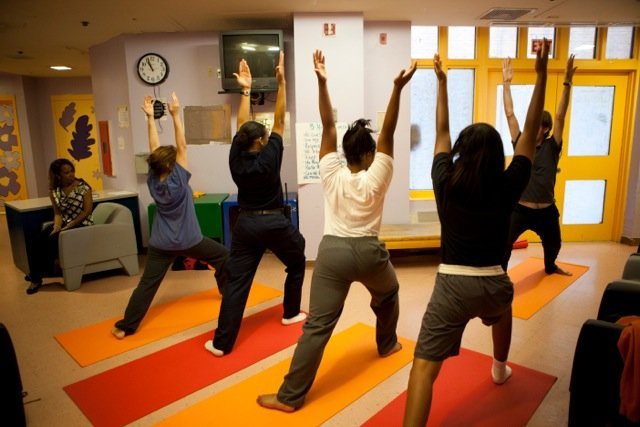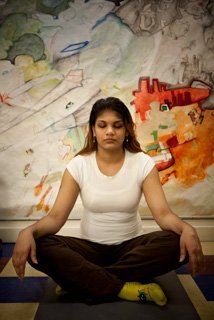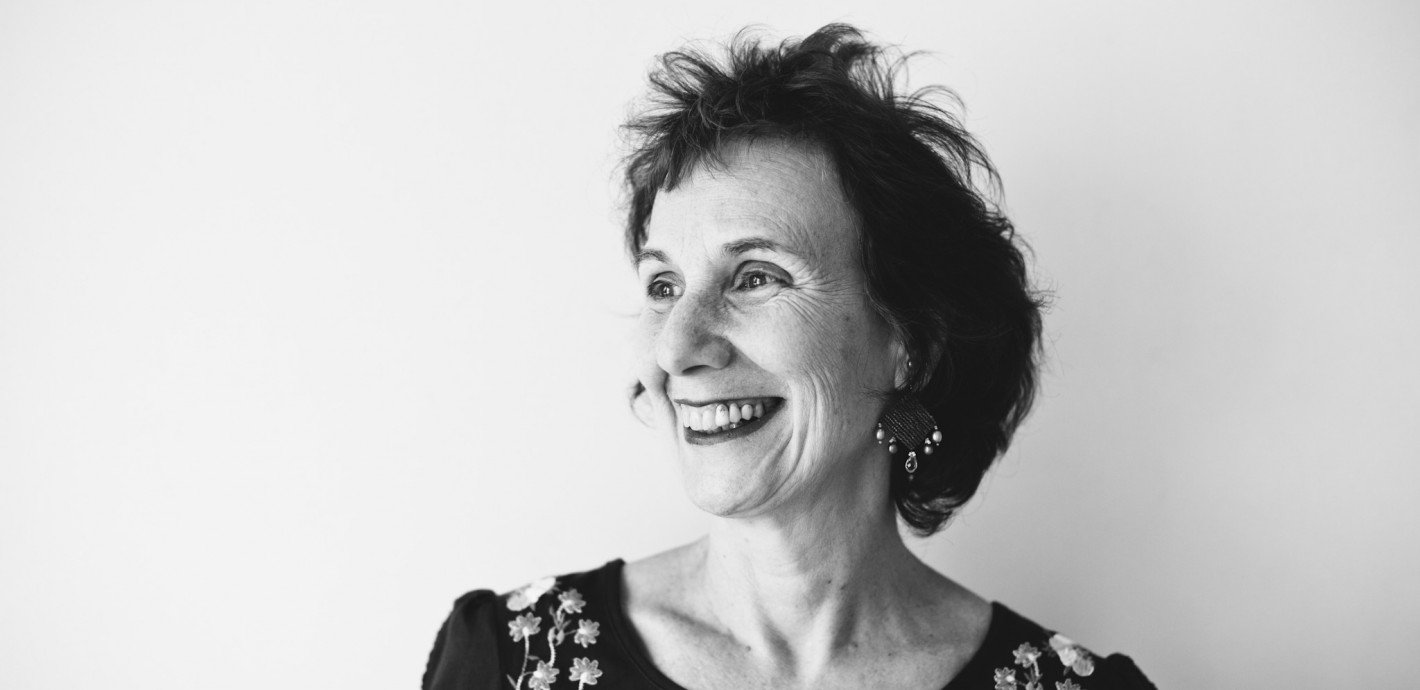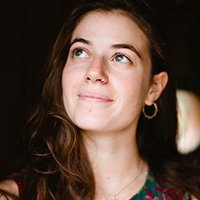Shawn shifts in his seat, takes a deep breath, and raises his hand. “I never thought that other people judged themselves, too,” he says. “I thought I was the only one.” The other students nod their heads in agreement.
Outside the walls of the classroom, life for these high school students is not easy. Many of them come from single parent homes, living close to or below the poverty line, and have themselves been, or have had family members, in and out of the criminal justice system. Once a week, a teacher from the Lineage Project, a New York City based non-profit committed to bringing mindfulness practices to at-risk and incarcerated youth, comes to teach at Shawn’s high school, which is populated by kids that have exhibited behavioral challenges in their home high schools and are transferred to a setting where they can be educated and learn how to respond to stress in a more productive way.
Most of these kids have deep behavioral issues rooted in the instability of their home life and exacerbated by an education system that cannot always meet their specific social and emotional needs. Lineage attempts to prevent these kids from continuing to fall between the cracks by giving them the tools they need to take control of their lives.
Class begins with a framing question related to that week’s theme: compassion, judgment, violence, justice, or love, for example. After the students share their responses, there is a movement portion of class, which mostly consists of yoga. The class ends with a meditation, either seated or lying down, in which the students learn to cultivate a sense of calm and self-love.
It’s beautiful. But it’s not always easy, and it doesn’t always “work” right away.
It’s beautiful. But it’s not always easy, and it doesn’t always “work” right away. Offering services while youth are incarcerated is particularly challenging because of the justice system’s mandate for “care and custody,” not necessarily rehabilitative services. Over the last number of years this mandate has changed dramatically. NYC juvenile detentions and prisons have invited programs that seek to address the high rate of reincarceration. Lineage has been in the forefront of this movement for 16 years. Convincing people that mindfulness can lead to objective change is a struggle. But in the past six years, since Beth Navon joined the organization as executive director, she has made this her mission.

Navon was born in Coney Island, Brooklyn in 1949, and grew up with her parents and Russian Jewish immigrant grandmother. She remembers wandering the tenement housing as a little girl with her grandmother, bringing food to their neighbors, feeding the stray cats, and absorbing the sounds and smells of the gypsy bungalows. She took it all in; before she learned to tie her shoes, she learned empathy. And so it is today: Navon leads with love, she leads with an understanding of the individual and collective suffering of those around her, and she aims to give a sense of calm and a sense of possibility to everyone she can reach.
For the past 40 years, Navon has worked on programs that support at-risk youth. “I started out as a social worker,” she says, eyes glowing with nostalgia. “For years I would go on home visits and hear stories of pain and suffering that you can’t even imagine! It was awful.” She felt the call to act. How could she help alleviate some suffering, but also make change in the cycle of poverty and oppression that so affected the urban poor?
She turned her attention towards at-risk youth—kids who didn’t think they’d live past 19, kids whose parents had been in and out of jail, kids whose siblings had died, kids who were in and out of foster care, kids who weren’t expected to graduate from high school or go on to higher education, kids who were expected to fail. “I wanted them to learn how to love themselves, so that they could break the cycle of injustice that their parents were born into.”
“I wanted them to learn how to love themselves, so that they could break the cycle of injustice that their parents were born into.”
Navon drew inspiration from many places. In 1996, she started as the executive director at Friends of Island Academy, a juvenile justice post release organization that provided help to kids being discharged from the alternative high school on Rikers Island. She incorporated dance, photography, and writing into the curriculum—everything she could think of to help kids tap in to a sense of quiet, a sense of creativity, and allow kids to temporarily escape from their harsh realities. At the same time in her personal life, she began meditating and practicing yoga more seriously.
Soon she saw a clear connection between those quieting practices and her ability to tap into her deepest potential. She wanted to help the kids she was working with do the same. And along came Lineage. Six years ago, they offered her half the salary she had been making previously to work part-time as executive director. It was one of those moments in life when the sensible answers about financial stability or a career path seemed totally inconsequential; she said yes.
At the time, the program had a $125,000 annual budget and five volunteer teachers who led a total of 10 classes each week. Lineage targeted 10- to 22-year-olds, though some of the detention centers housed kids as young as seven. They were the little boys and little girls who were enticed by the prospect of making money, and became go-betweens in local drug deals. One wave of the hand pointing a customer in the right direction could land a third grader in juvie.
Today, Lineage holds 40 classes per week, serving more than 2,000 students every year. Beth, along with her senior teachers, have created a robust and extensive training program for volunteer teachers, held multiple times per year. In early October, Lineage became its own independent 501(c)3 non-profit in New York City, a huge milestone in the organization’s short and amazing history. This opens the door for Lineage to apply for more foundations, city, state and federal grants. Beth’s charisma and dedication has enabled her to gather advocates, teachers, and board members who have turned Lineage into a fully functioning and independent life-changing program.

It’s hard to show that mindfulness makes change. Grant giving organizations want to see stats, which show actionable difference. But mindfulness is a journey, and it’s also not magic. Mindfulness teaches these kids to take an extra moment for pause before their temper or their self-destructiveness takes over. Recidivism in America is rampant. And it’s the worst for young people. Studies show that those who are arrested between the age of 11 and 21 are more than 50% likely to be arrested again within one year.
Politicians, religious leaders, and non-profit organizations are not blind to these issues; there are massive campaigns across sectors to address this problem, many of which have proven insufficient. But as Beth has seen, we need the educational programs, we need the community building and non-violent communication programs, and more and more, we’re seeing that we need mindfulness. “The truth is,” she says, “the socio-economic challenges of everyday life do not go away, but the ability to cope with them can be vastly improved. We need as much help as we can get: in the system, and out.”
In Christina’s last Lineage class, she pulled her teacher aside at the end. “I just want you to know,” she began, “this is my last class, and I promise you that every time I feel the yucky thoughts about myself come up I’m going to try to see the thoughts as thoughts and see if they can lead me to more peace.” The difficult nuance of the journey was not lost on Christina, for she continued thoughtfully, “I’m not sure if it’s always gonna work, but I know I’m gonna try.” Mindfulness is an invitation to step onto the path of introspection, growth, and learning. Lineage facilitates inquiry, facilitates community, and enables students like Christina and Shawn to feel supported by their peers, also seeking peace of mind, and a sense of home.
Cover Photo by Hailey Wist









Comments (0)